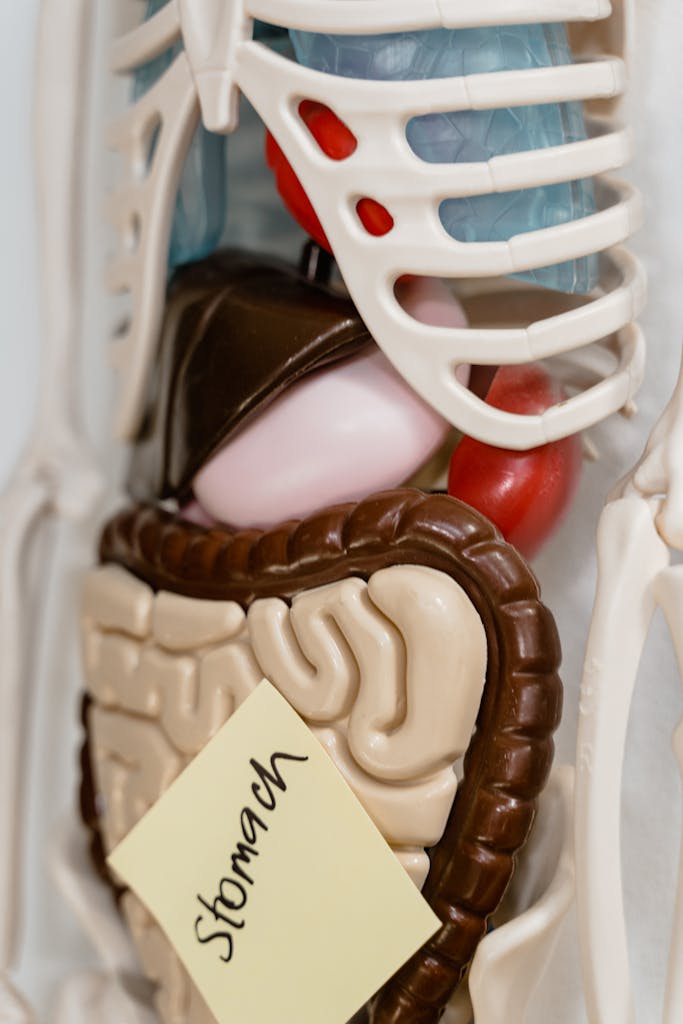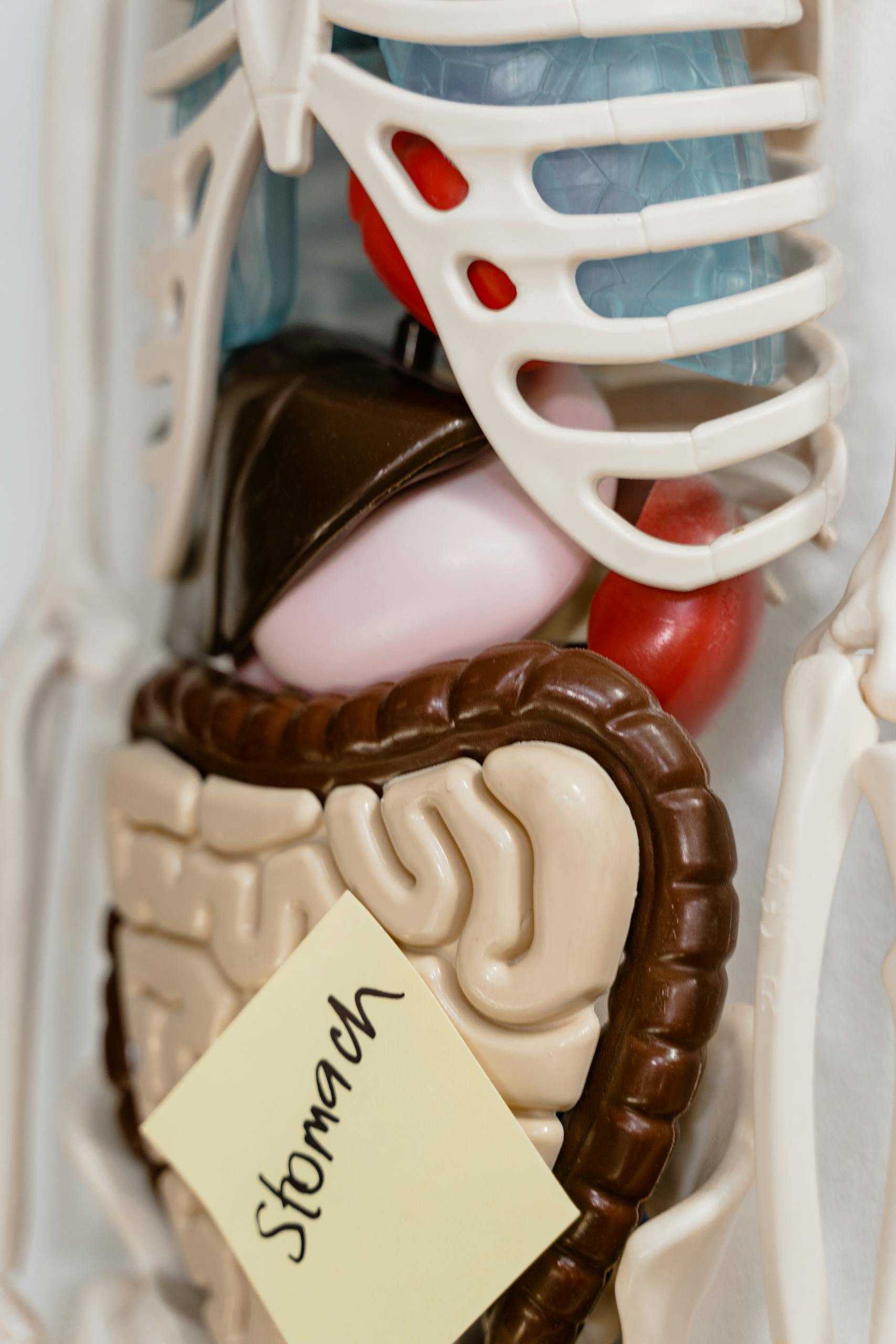The Role of Gut Health in Mental Well-being: 4 Practical Steps to Improve Gut Health for Better Mental Health
Introduction
The gut-brain axis—the relationship between our stomach and brain—is becoming more widely acknowledged as a critical component of mental health. Studies have demonstrated the profound influence of gut health on mental health, including anxiety, depression, and even stress reduction. This article examines the connection between gut health and mental health and how improving knowledge of the gut-brain axis can improve mental health outcomes.

The Gut-Brain Axis: An Overview
The gut-brain axis is a complex communication network that links the central nervous system (CNS) with the enteric nervous system (ENS) of the gastrointestinal tract. This bi-directional communication is facilitated by neural, hormonal, and immunological pathways. The gut and brain communicate through the vagus nerve, neurotransmitters, and immune system signaling, making it clear that the gut can influence brain function and vice versa.
Research by Cryan and Dinan (2015) highlighted the role of the microbiome, the community of microorganisms living in our intestines, in regulating this communication. The gut microbiome produces neurotransmitters such as serotonin, dopamine, and gamma-aminobutyric acid (GABA), which are critical for mood regulation and mental health.
The Impact of Gut Health on Mental Health
1. Anxiety and Depression
Gut health has been closely linked to anxiety and depression. A study by Clarke et al. (2013) demonstrated that germ-free mice exhibited exaggerated stress responses, which were normalized after the introduction of gut microbiota. This suggests that gut bacteria play a role in stress resilience. Additionally, the consumption of probiotics, which promote healthy gut bacteria, has been associated with reduced symptoms of anxiety and depression (Slykerman et al., 2017).
2. Stress Response
The gut-brain axis also influences how the body responds to stress. The hypothalamic-pituitary-adrenal (HPA) axis, which controls the body’s response to stress, is regulated in part by gut bacteria. Dysbiosis, or an imbalance in gut microbiota, can lead to an overactive HPA axis, resulting in increased stress and associated mental health issues (Foster et al., 2017).
3. Cognitive Function
Emerging research suggests that gut health can impact cognitive functions such as memory and learning. For example, a study by Mohajeri et al. (2018) found that a balanced gut microbiome supports cognitive health by reducing inflammation and promoting the production of neurotrophic factors that support brain health.
The Role of Diet in Maintaining Gut Health
Diet plays a crucial role in maintaining a healthy gut, and consequently, mental well-being. The Western diet, high in fats and sugars, has been shown to negatively impact the gut microbiome, leading to increased inflammation and a higher risk of mental health disorders (David et al., 2014). In contrast, diets rich in fiber, such as the Mediterranean diet, support a diverse and healthy gut microbiome, which is associated with better mental health outcomes.
1. Prebiotics and Probiotics
Prebiotics are non-digestible fibers that feed beneficial gut bacteria, while probiotics are live beneficial bacteria. Including foods rich in prebiotics (such as garlic, onions, and bananas) and probiotics (such as yogurt, kefir, and fermented vegetables) can enhance gut health. Studies have shown that prebiotic and probiotic supplementation can reduce symptoms of anxiety and depression by promoting a healthy gut microbiome (Mörkl et al., 2020).
2. Omega-3 Fatty Acids
Omega-3 fatty acids, found in fish, flaxseeds, and walnuts, have anti-inflammatory properties that benefit both the gut and brain. A study by Bazinet and Layé (2014) highlighted the role of omega-3s in reducing gut inflammation and supporting mental health.
3. Polyphenols
Polyphenols, found in foods like berries, tea, and dark chocolate, have antioxidant properties that support gut health by reducing inflammation and promoting the growth of beneficial gut bacteria (Cardona et al., 2013). These compounds have been linked to improved cognitive function and reduced symptoms of depression.
4 Practical Steps to Improve Gut Health for Better Mental Well-being
1. Adopt a Gut-Healthy Diet
Prioritize a diet rich in fiber, fermented foods, and healthy fats. Reducing processed foods and sugars can help maintain a balanced gut microbiome.
2. Consider Probiotic Supplements
Probiotic supplements can be a convenient way to boost gut health, especially for those with specific mental health concerns. However, it’s essential to choose high-quality supplements with proven strains of beneficial bacteria.
3. Manage Stress
Chronic stress can disrupt gut health, so incorporating stress management techniques such as mindfulness, meditation, and regular exercise can benefit both your gut and mental health.
4. Regular Physical Activity
Exercise has been shown to positively influence gut health by promoting the diversity of gut bacteria. Engaging in regular physical activity can help maintain a healthy gut-brain axis.
Conclusion
The relationship between mental health and gut health emphasizes how crucial it is to keep the gut healthy in order to promote mental health. Understanding the relationship between the stomach and the brain and implementing dietary and lifestyle changes that support gut health may help people become healthier overall and lower their chance of developing mental health issues.
References
Bazinet, R. P., & Layé, S. (2014). Polyunsaturated fatty acids and their metabolites in brain function and disease. Nature Reviews Neuroscience, 15(12), 771-785.
Cardona, F., Andrés-Lacueva, C., Tulipani, S., Tinahones, F. J., & Queipo-Ortuño, M. I. (2013). Benefits of polyphenols on gut microbiota and implications in human health. The Journal of Nutritional Biochemistry, 24(8), 1415-1422.
Clarke, G., Grenham, S., Scully, P., Fitzgerald, P., Moloney, R. D., Shanahan, F., … & Cryan, J. F. (2013). The microbiome-gut-brain axis during early life regulates the hippocampal serotonergic system in a sex-dependent manner. Molecular Psychiatry, 18(6), 666-673.
Cryan, J. F., & Dinan, T. G. (2015). Gut microbiota: microbiota and neuropsychiatric disorders. Nature Reviews Gastroenterology & Hepatology, 12(8), 401-412.
David, L. A., Maurice, C. F., Carmody, R. N., Gootenberg, D. B., Button, J. E., Wolfe, B. E., … & Turnbaugh, P. J. (2014). Diet rapidly and reproducibly alters the human gut microbiome. Nature, 505(7484), 559-563.
Foster, J. A., Rinaman, L., & Cryan, J. F. (2017). Stress & the gut-brain axis: Regulation by the microbiome. Neurobiology of Stress, 7, 124-136.
Mörkl, S., Lackner, S., Müller, W., Gorkiewicz, G., Kashofer, K., Oberascher, A., … & Bengesser, S. (2020). Gut microbiota, dietary habits and psychotropic medication intake in individuals with anxiety/depression. Nutrients, 12(8), 2407.
Mohajeri, M. H., La Fata, G., Steinert, R. E., Weber, P., & Acosta, E. B. (2018). Relationship between the gut microbiome and brain function. Nutrition Reviews, 76(7), 481-496.
Slykerman, R. F., Hood, F., Wickens, K., Thompson, J., Barthow, C., Murphy, R., … & Crane, J. (2017). Effect of early probiotic supplementation on childhood cognition, behavior, and mood: follow-up of a randomized trial involving pregnant women and their offspring. Pediatric Research, 82(4), 529-535.







